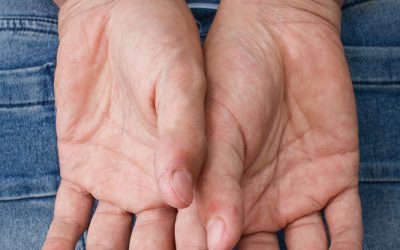When non-addicts do not develop healthy life skills, the consequence is that they may be unhappy in life. When recovering individuals do not develop healthy life skills, the consequence is that they also may be unhappy in life, but that can lead to relapse. There are many risks to recovery at this stage, including physical cravings, poor self-care, wanting to use just one more time, and struggling with whether one has an addiction.
Estimating the Number of People “In Recovery”

In contrast, our study found relatively stable recovery rates during the entire duration of sickness absence, except for the initial months. One important difference between our study and Koopmans et all’s is that we conducted subgroup analyses by gender and type of disease. Nonetheless, given that recovery rates were relatively stable across all diagnoses and genders, we anticipate a similarly stable combined recovery rate. Another key difference is that sickness policies in the Netherlands have changed over time.
Functional network analysis
Findings from this study attest to the fact that individuals with extensive substance use histories can and do recover to become productive members of society. Most participants (65%) provided more than one answer to describe significant recovery experiences. The escalating negative consequences of substance use were cited most often as important reasons for either getting or staying sober (46%). http://www.sms4love.ru/sms/sms-lyubimomu/zhurchat-lish-ruchi-i-zhizn.html Negative consequences spanned all areas of life, from physical and mental health to economic and social. Substance related accidents, arrests and legal trouble were cited by 22% of respondents, bringing the total percentage of negative consequence-related answers to 68%. Help and support of family, friends and peers (including “interventions by someone”) were also cited frequently (30%).
- The tasks of this stage are similar to the tasks that non-addicts face in everyday life.
- This comes as no surprise since prior research has consistently shown that adherence to treatment recommendations such as recovery activities and to implement behavioral change is in general hard [60].
- In fact, people in recovery might be better off if the term “relapse” were abandoned altogether and “recurrence” substituted, because it is more consistent with the process and less stigmatizing.
- When non-addicts do not develop healthy life skills, the consequence is that they may be unhappy in life.
- Sustained remission is applied when, after 12 months or more, a substance is no longer used and no longer produces negative life consequences.
Facing Addiction in America: The Surgeon General’s Report on Alcohol, Drugs, and Health [Internet].
People with moderate to severe substance use disorders may benefit from a long-term residential rehab program. The need for recovery activities had changed during the recovery process, from being almost the only thing the participants needed to becoming one of many important parts of their daily life. Different types of recovery activities were needed during different times in the recovery process. http://blogintriga.ru/porn/4577-eta-molodenkaya-shalavka-zahotela-chlena.html Your length of stay will generally last between 6-12 months, giving you plenty of time to detox, talk to other residents, learn from them and the staff, take part in therapeutic activities and receive job training. The approach is recovery-based as opposed to abstinence-based, so you can focus on revamping your entire life with the knowledge that addiction is a chronic, relapsing disease.
- For each case, we calculated the duration of sickness, defined as the interval from the first to the last registered day of sickness absence.
- The critical issues of early recovery—staying clean, finding safe housing and employment, confronting legal consequences, and making new, sober friends—often feel more manageable by the time we enter long-term recovery.
- It could be seen from Table S11 and Figure S11 that most clusters from the two groups contained different numbers of nodes or links, indicating the difference in the topology structure of functional networks.
- Additionally, it may be difficult to find space in such a program when a person admits to being ready for help.
- For example, social support has been found to buffer stress (e.g., Taylor and Aspinwall, 1996).
Since there are several factors to consider, it may be helpful to contact the facility you’re interested in to discuss treatment options and services. If you’re looking for addiction treatment, the process may feel overwhelming, especially when it comes to cost. Long-term rehabs typically cost more than outpatient or short-term rehabs since a person stays in the facility, stays longer and there may be more comprehensive services offered. Private, luxury and executive rehabs will cost more than free and state-funded options. For people who have long-term struggles with addiction, have been in treatment before, relapsed, or have co-occurring mental health conditions, long-term rehab may be beneficial. Addiction is a chronic, progressive, and potentially fatal disorder, similar to other chronic life-threatening conditions such as diabetes, asthma, and heart disease.

Emotion-focused behaviors aim to alter the response to the stressor and include seeking emotional support, avoidance, denial, positive reappraisal, isolation, venting, rumination, wishful thinking, self-blame, positive self-talk, and exercise. According to the study, women tend to make more use of coping strategies compared to men, particularly more emotion-focused http://psychology.net.ru/comcom/Forums.php?Page=1&ForumID=1&id=29562&order=desc&inc= strategies. Van Rhenen et al. (2008) investigated the role of different coping styles on both the duration and frequency of sickness absence [29]. They found that both the use of an active problem-solving coping style and seeking emotional support decreased the mean sickness absence duration, with a stronger effect of the problem-solving coping style.
